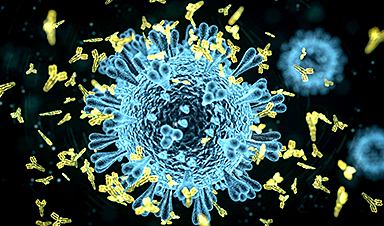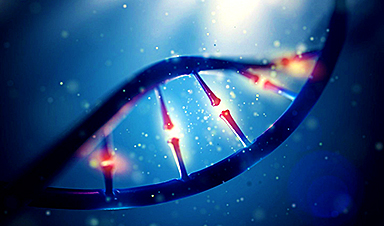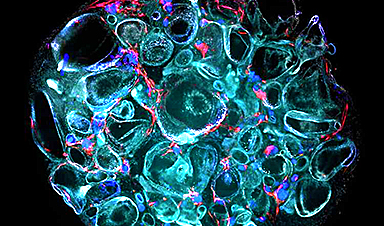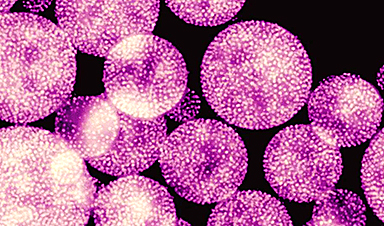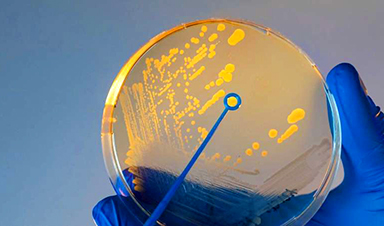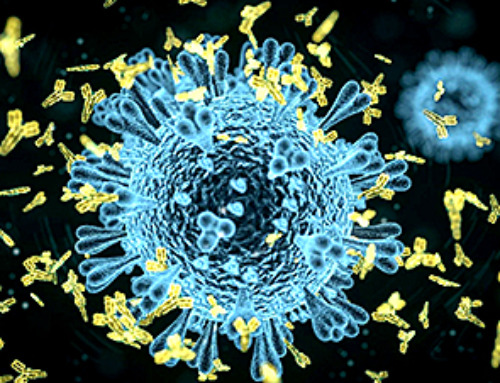Drug cancer cell treatment, Doxil, manufactured by Ayana Pharma, was launched a week ago, to the International Space Station, as part of the mission of SpaceX. The launch of the drug was made possible by SpacePharma, an Israeli start-up laboratory.
Certainly a cosmic breakthrough in the field of Space, this latest development could impact the treatment of drugs against cancer.
Doxil Nanotechnology Drug
A week ago, the pioneering study was launched without any intended witticism. The Falcon 9 launcher of SpaceX carried an extremely sophisticated laboratory that SpacePharma developed.
Their space laboratory is shrunk or mini version of the technology utilized for regular testing, although it weighs only four kilograms. It allows for more remote-controlled, actual-time testing to be carried out in space.
The objective of the study was to test if the cancer treatment, a nanotechnology drug that Ayana Pharma developed to treat cancer, would change in zero-gravity conditions. The study authors wanted to find out the drug itself or its actions against cancer cells would change the celestial space.
Essentially, Doxil is a complex-structure liposome drug formulated to treat ovarian cancer, several myelomas, or bone marrow cancer, as well as other contraindications.
The complex and unique structure of the drug makes it possible to test whether conditions of non-gravity, as they exist in space, affect the physical properties of the drug and its activity against cancer cells.
Probable Changes in the Nanoparticle Drug Investigated
Since the chemical and physical properties of Doxil and the cancer cell may differ under gravitational circumstances, the study authors will seek to investigate if there are changes in the nanoparticle, acceptance into cancer cells, the active substance that combats cancer cells, as well as its rate of discharge, and the drug’s distinctive envelope properties.
The notion behind this study is certainly to understand better the aspects of the drug, as it may specify a future probability of the efficacy in conditions of non-gravity.
The development of Doxil, detailed in the Chemocare site, was led by the Hebrew University’s Professor Yehezel Bernholtz, who, in 2012, founded Ayana Pharma.
The professor is recognized as a global expert in nanotechnology therapeutics, as Doxil was the first nanotechnology drug of the world approved by the Food and Drug Administration, as reported in the Fierce Pharma site.
His pharmaceutical firm focuses on both the development and production of liposomal drugs for cancer treatment, not just for cancer but also for other diseases.
News
Novel hydrogel removes microplastics from water
Microplastics pose a great threat to human health. These tiny plastic debris can enter our bodies through the water we drink and increase the risk of illnesses. They are also an environmental hazard; found [...]
Researchers Discover New Origin of Deep Brain Waves
Understanding hippocampal activity could improve sleep and cognition therapies. Researchers from the University of California, Irvine’s biomedical engineering department have discovered a new origin for two essential brain waves—slow waves and sleep spindles—that are critical for [...]
The Lifelong Cost of Surviving COVID: Scientists Uncover Long-Term Effects
Many of the individuals released to long-term acute care facilities suffered from conditions that lasted for over a year. Researchers at UC San Francisco studied COVID-19 patients in the United States who survived some of the longest and [...]
Previously Unknown Rogue Immune Key to Chronic Viral Infections Discovered
Scientists discovered a previously unidentified rogue immune cell linked to poor antibody responses in chronic viral infections. Australian researchers have discovered a previously unknown rogue immune cell that can cause poor antibody responses in [...]
Nature’s Betrayal: Unmasking Lead Lurking in Herbal Medicine
A case of lead poisoning due to Ayurvedic medicine use demonstrates the importance of patient history in diagnosis and the need for public health collaboration to prevent similar risks. An article in CMAJ (Canadian Medical Association [...]
Frozen in Time: How a DNA Anomaly Misled Scientists for Centuries
An enormous meteor spelled doom for most dinosaurs 65 million years ago. But not all. In the aftermath of the extinction event, birds — technically dinosaurs themselves — flourished. Scientists have spent centuries trying [...]
‘Mini kidneys’ reveal new insights into metabolic defects in polycystic kidney disease
Scientists at Nanyang Technological University, Singapore (NTU Singapore) have successfully grown 'mini kidneys' in the lab and grafted them into live mice, revealing new insights into the metabolic defects and a potential therapy for [...]
Decoding the Origin of Life: Scientists Solve Early Earth RNA Puzzle
Recent research illustrates how RNA molecules’ chemical characteristics might have played a crucial role in the development of complex life forms. How did complex life manage to evolve on the early, inhospitable Earth? Initially, [...]
Improving infectious disease testing with gold nanoparticles
By harnessing the power of composite polymer particles adorned with gold nanoparticles, a group of researchers have delivered a more accurate means of testing for infectious diseases. Details of their research was published in the [...]
New micromaterial releases nanoparticles that selectively destroy cancer cells
Researchers have developed micromaterials made up only of proteins, capable of delivering over an extended period of time nanoparticles that attack specific cancer cells and destroy them. The micromaterials mimic natural secretory granules found [...]
Alzheimer’s Breakthrough: Scientists Make Revolutionary Leap
Dementia is a major health issue worldwide in the 21st century, impacting over 50 million people globally. This figure is expected to soar to 152 million by 2050, as the global population ages. Alzheimer’s disease (AD) [...]
How small RNA molecules regulate viral infections of bacteria
Viruses need hosts. Whether it's measles, the flu or coronavirus, viral pathogens cannot multiply or infect other organisms without the assistance of their hosts' cellular infrastructure. However, humans are not the only ones affected [...]
Computer scientists discover gap in the latest security mechanisms used by some chips
Over the past few years, hardware manufacturers have developed technologies that ought to make it possible for companies and governmental organizations to process sensitive data securely using shared cloud computing resources. Known as confidential [...]
Microplastics Are a Big Problem, a New Film Warns
It’s been more than five decades since Dustin Hoffman’s character in “The Graduate” was offered a kernel of wisdom about the path to prosperity. “Plastics,” he’s told by Mr. McGuire, the starched corporate executive who [...]
The Precarious Asymmetries of Human-AI Relationships
KEY POINTS Human-AI interactions are currently asymmetrical, lacking continuity and depth. AI evolution may lead to more sustained, contextually rich user relationships. Balancing asymmetry and connection requires design advocacy and technological adaptations. As artificial intelligence (AI) [...]
Vaping’s Hidden Dangers: New Study Links E-Cigarettes to DNA Changes
A new study led by researchers from University College London (UCL) and the University of Innsbruck reveals that individuals who use e-cigarettes, despite having a limited history of smoking, undergo similar changes in DNA within certain cells of the cheek, [...]




